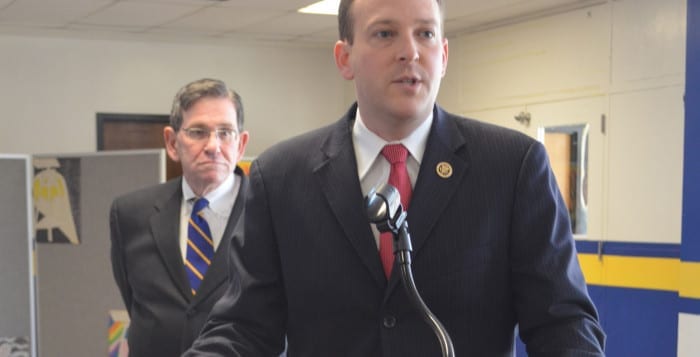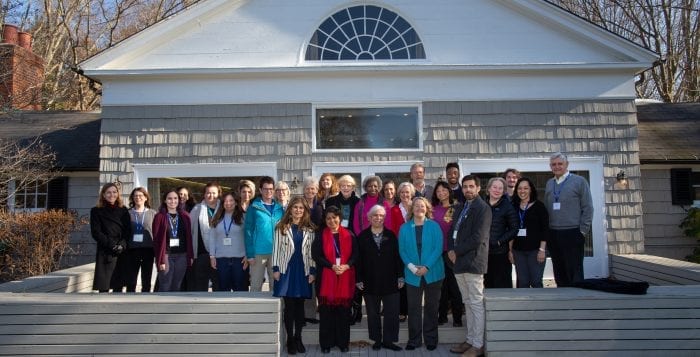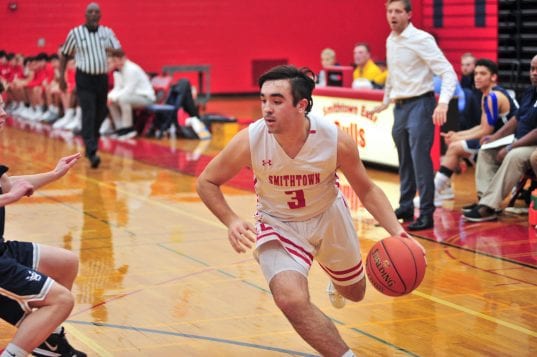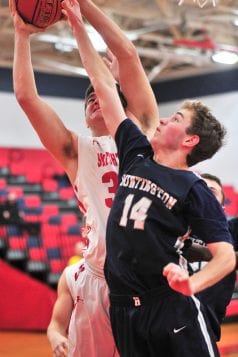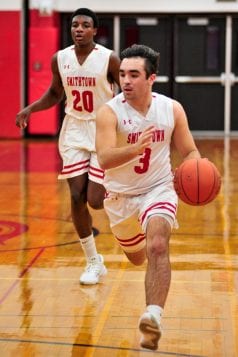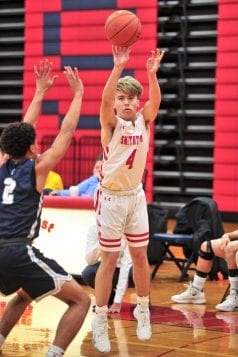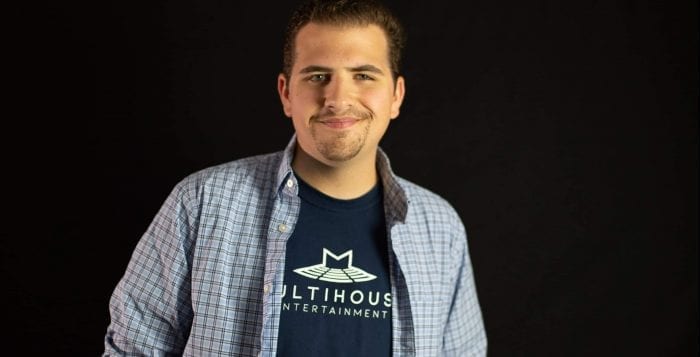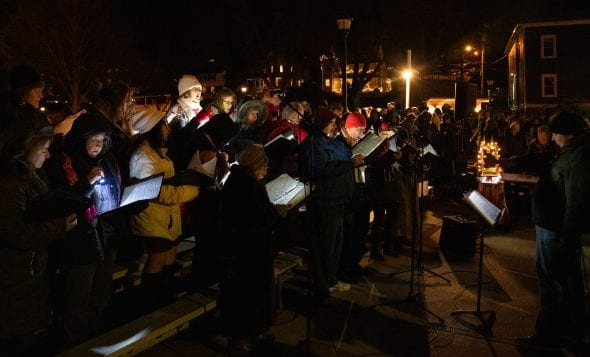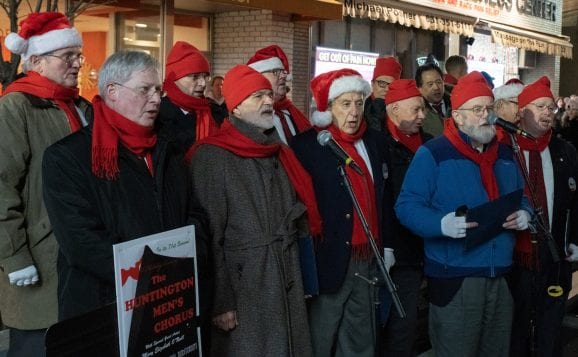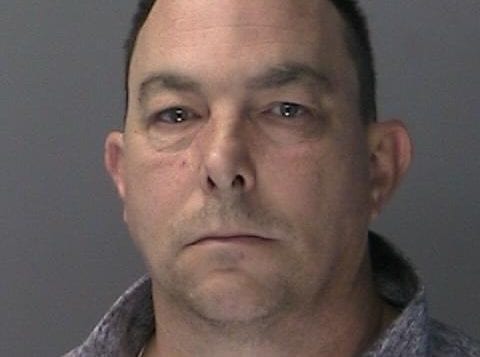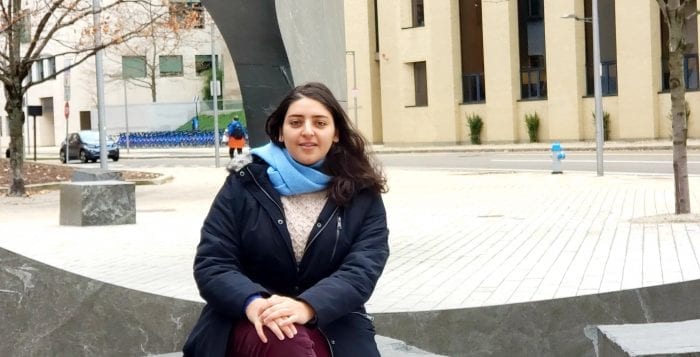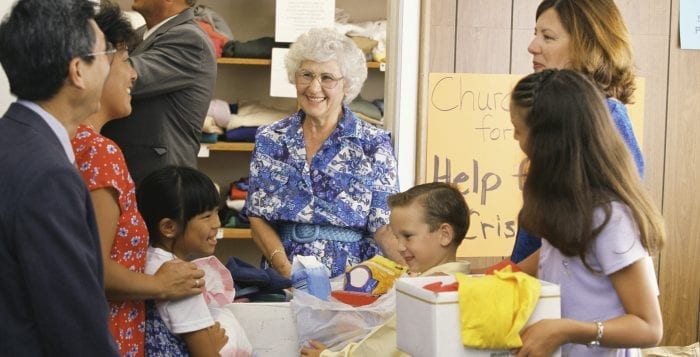The U.S. House of Representatives has recommended filing articles of impeachment of the 45th president of the United States of America Donald J. Trump (R). Many elected officials, mostly Democrats and constitutional scholars, see a moral and legal imperative for their position, while Republicans have largely remained loyal to their party leader. With some experts saying that the nation is under threat, the situation demands everyone’s full attention. Rep. Lee Zeldin (R-NY-1) is the elected congressional representative for most of Suffolk County. His district extends to the west to the eastern edges of Kings Park and includes Smithtown and Hauppauge and parts of Commack. Hours after the recommendation was announced on Dec. 5, Rep. Zeldin agreed to an email interview on the topic of impeachment.
Do you see any compelling reason for impeachment?
No.
In your view, what constitutes a crime or misdemeanor offense worthy of impeachment?
Treason, bribery or other high crimes and misdemeanors as laid out in Section 4 of Article II of the Constitution.
(Article II, Section 4 of the Constitution: The President, Vice President and all civil Officers of the United States, shall be removed from Office on Impeachment for, and Conviction of, Treason, Bribery, or other high Crimes and Misdemeanors.)
What’s your reaction to the impeachment?
Instead of focusing on opposing everything and anything, House Democrats should focus on the issues most important to the American people, working on bipartisan victories to pass the [U.S.-Mexico-Canada Agreement] USMCA, combat the heroin and opioid abuse epidemic, secure our borders and so much more.
(Editor’s note: The White House and House Democrats reached a deal Dec. 10 to pass the USMCA.)
Why did you, along with other House Republicans, interrupt a committee meeting that had members of both parties in attendance and stall the impeachment probe?
The premise of your question is false. As a member of the House Foreign Affairs Committee, I was already in the SCIF in my seat when those other members walked in.
What is your take on House Republicans interrupting on Oct. 23 the impeachment probe committee meeting?
There should have been greater transparency and a fairer process in the first place. They were very frustrated as elected members of Congress being completely in the dark while being asked questions back home from constituents and local media about what was going on with the impeachment inquiry.
Do you believe a U.S. president should use U.S. taxpayer dollars as leverage to coerce a foreign leader to investigate a political rival?
If you are asking that question related to the Ukraine fact pattern, then I disagree with the premise of your question.
What is your take on what happened with President Trump requesting [help from]Ukraine leader Volodymyr Zelensky?
Can you clarify this question?
Clarification: Do you find any of these actions objectionable? President Trump requested in a July 25, 2019, phone call that Ukrainian President Volodymr Zelensky take a call from his personal lawyer Rudy Giuliani to discuss an investigation into the son of his political rival. The White House then placed that same day a formal hold on $250 million congressionally approved security funding for Ukraine. The funds were ultimately released Sept. 11 after a whistle-blower filed a complaint, 85 days after the Pentagon announced that aid had become available, 19 days before funds expire.
That is your version of the story. You are entitled to your opinion but I obviously would disagree with the premise of your question.
Do you believe that Ukraine and not Russia interfered in the 2016 election?
Russia interfered in the 2016 election. Ukrainians also interfered in the 2016 election. That is indisputable. The scope and nature of the interference was different in the two examples, not on the same scale, and should not be equated.
Are you planning to make the impeachment proceedings a point in your upcoming reelection campaign?
The Democrats are ripping our country in half with their destructive impeachment obsession.
Has anything in the ongoing impeachment proceedings changed your mind concerning the actions of the president?
No.
Can you please tell us how many former members of Trump’s campaign, cabinet and personal lawyers have been investigated and/or convicted of crimes? What’s your reaction to this?
I’m not aware of any new information to add beyond what you know already.
As a member of the Foreign Affairs Committee, when did you become aware of the removal of U.S. troops from Kurdish territories? Do you believe other countries or leaders have benefited from that strategy?
As I relayed to you immediately following the announcement, the Kurds have fought, bled and died fighting alongside the US. They have been warriors and brothers in battle along the way. The president is right to want to end endless war, but the Turks wiping out the Kurds would absolutely not be an acceptable outcome after all of that.
(On background, Zeldin voted in favor of the House resolution [H.J. Res. 77 Opposing the decision to end certain United States efforts to prevent Turkish military operations against Syrian Kurdish forces in Northeast Syria] regarding this issue. The resolution indicated that the policy was in the best interest of Russia and not U.S.)
What do you believe are President Trump’s top three accomplishments in office?
Helping grow the economy, tackling illegal immigration and going after MS-13, among many other victories.
Could you list three negative things that he has fostered?
The SALT deduction change, an offshore drilling proposal impacting the Atlantic and certain funding levels in the federal budget.
Many of your North Shore constituents are calling for more Town Hall-style meetings. Are you planning any?
I had a town hall in September hosted by the Mastic Beach Property Owners Association. The event was completely open to anyone in the public and was widely promoted and attended by the Democratic Party and they got their questions and comments in, including multiple times with 2, 3, and more follow-ups to their original question/comment. This is in addition to Mobile Office Hours, Coffee with Your Congressman and many other meetings and events. This is the pace that I’ve set and maintained since entering Congress in 2015. As I’ve said time and time again, if someone wishes to participate in a future meeting or would like to schedule a time to meet one-on-one, they can contact my office at 631-289-1097 to find a time most convenient for them, including after work or on the weekend. For example, this year in Smithtown alone, I’ve held Mobile Office Hours and Coffee with Your Congressman.
Can you please define for your constituents what corruption means?
An example is a corrupt Ukrainian energy company run by a corrupt Ukrainian oligarch hiring someone with no Ukraine experience and no energy experience for at least $50,000 per month for the sole reason that they are the vice president’s son.
Can you please offer the distinctions between a democracy, autocracy and dictatorship?
The widely accepted definitions are as follows:
Democracy: A government in which the supreme power is vested in the people and exercised by them directly or indirectly through a system of representation usually involving periodically held free elections.
Autocracy: Government in which one person possesses unlimited power.
Dictatorship: A form of government in which absolute power is concentrated in a dictator or a small clique.
Also, Michael Cohen is behind bars for campaign finance violations that include paying Stormy Daniels and Karen McDougal to keep quiet about their affairs with Donald Trump. Cohen testified that it was done in coordination with Donald Trump. Does paying “hush money” to influence the outcome of an election equate with bribery or a high crime or misdemeanor? Why or why not? Is it corruption?
He made these claims before Congress after pleading guilty to crimes, one of which was lying to Congress. He’s not a reliable witness to say the least.

